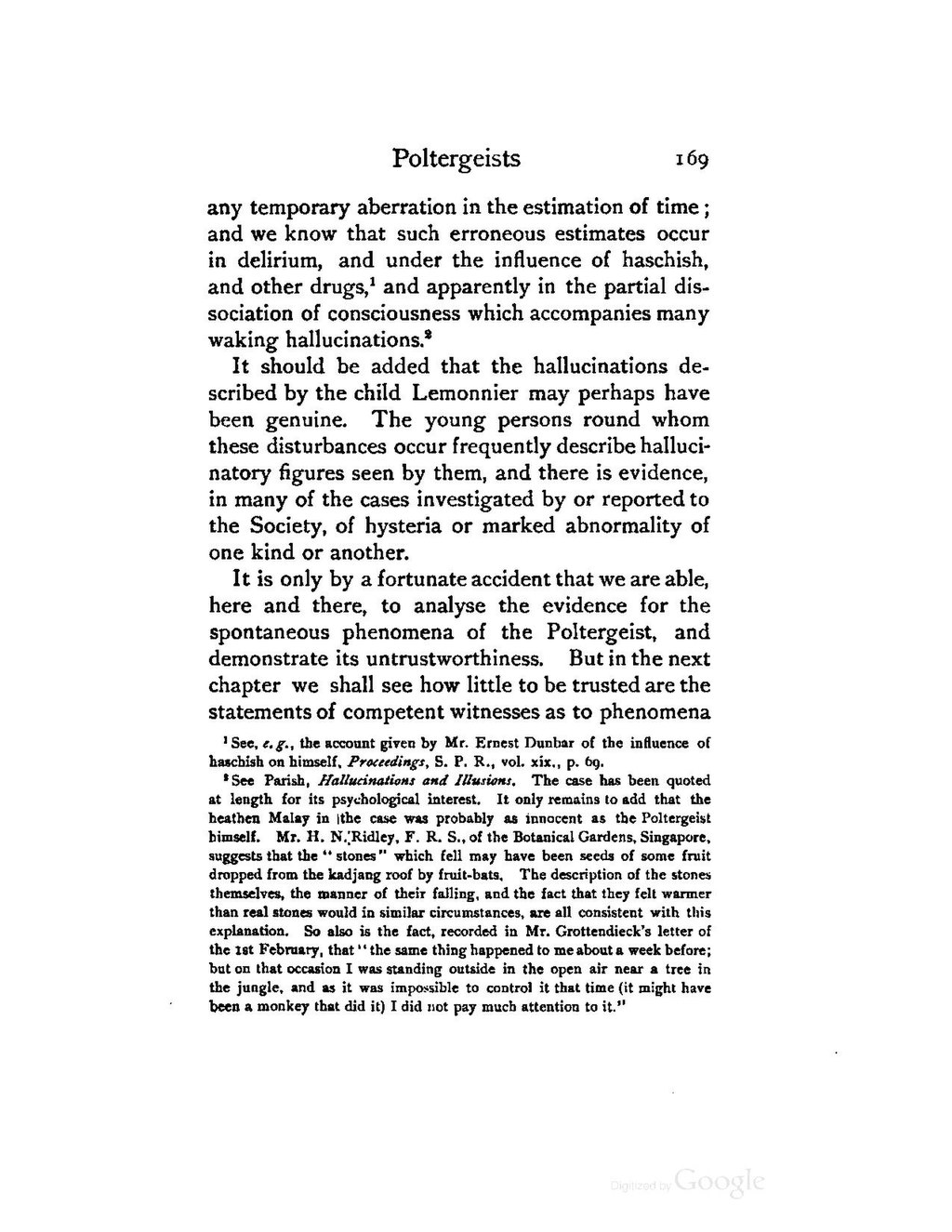any temporary aberration in the estimation of time; and we know that such erroneous estimates occur in delirium, and under the influence of haschish, and other drugs,[1] and apparently in the partial dissociation of consciousness which accompanies many waking hallucinations.[2]
It should be added that the hallucinations described by the child Lemonnier may perhaps have been genuine. The young persons round whom these disturbances occur frequently describe hallucinatory figures seen by them, and there is evidence, in many of the cases investigated by or reported to the Society, of hysteria or marked abnormality of one kind or another.
It is only by a fortunate accident that we are able, here and there, to analyse the evidence for the spontaneous phenomena of the Poltergeist, and demonstrate its untrustworthiness. But in the next chapter we shall see how little to be trusted are the statements of competent witnesses as to phenomena
- ↑ See, e.g. the account given by Mr. Ernest Dunbar of the influence of haschish on himself, Proceedings, S. P. R., vol. xix., p. 69.
- ↑ See Parish, Hallucinations and Illusions. The case has been quoted at length for its psychological interest. It only remains to add that the heathen Malay in the case was probably as innocent as the Poltergeist himself. Mr. H. N.:Ridley. F. R. S.. of the Botanical Gardens, Singapore, suggests that the "stones" which fell may have been seeds of some fruit dropped from the kadjang roof by fruit-bats. The description of the stones themselves, the manner of their falling, and the fact that they felt warmer than real stones would in similar circumstances, are all consistent with this explanation. So also is the fact, recorded in Mr. Grottendieck's letter of the 1st February, that "the same thing happened to me about a week before; but on that occasion I was standing outside in the open air near a tree in the jungle, and as it was impassible to control it that time (it might have been a monkey that did it) I did not pay much attention to it."
